By HPG Info
•
January 14, 2026
DR. JOE HILL President @HPG | Author of The TQ ADVANTAGE When Your Board Metrics Say "Winning" But Your Gut Says "Failing" I had the same conversation 23 times last year. Not in conference keynotes, where everyone performs as a "strategic leader who has it figured out." In parking lots after workshops. On follow-up calls at 7 PM. In texts that started "Can I ask you something that's been eating at me?" A superintendent, after crushing every board metric: "Joe, why do I feel like I'm failing at everything that actually matters?" A university president with the most credentialed cabinet she's ever led: "We can't make a decision without three meetings. What am I missing?" A college president at 11 PM (via text): "I spend more time managing my cabinet's dysfunction than actually leading. How did I become this person?" Here's what's frustrating: I gave terrible answers. Not because I'm incompetent—because these questions revealed problems I hadn't solved for myself. So I spent Q4 doing what I should've done in Q1: figuring out what I should have said. Turns out, the questions superintendents and presidents struggled with most in 2025 weren't about strategy, enrollment, or board politics. They were about survival while everyone watches you succeed. Here are the three questions I botched—and the answers I wish I'd had ready. QUESTION 1: "When Does Being Driven Cross Into Being Obsessive?" The Moment I Realized I Had No Answer Community college president—let's call her Rachel—after a Team Institute session: "I'm in the office 6 AM to 7 PM. Weekends. My cabinet says I'm 'inspiring.' My spouse says I'm 'unavailable.' I thought this IS leadership. But am I driven or just addicted?" I gave her the standard consultant answer about balance and boundaries. It was garbage. Because I was answering emails during our Netflix date night. I was "inspiring" my people while my wife wondered if I remembered her name. Glass houses, meet stones. What I Figured Out By December There's actual research on this—the dualistic model of passion : Harmonious Passion: Flexible and energizing Fills you up When you can't do it, you're disappointed but okay Sustainable forever Obsessive Passion: Rigid persistence even when it's destroying you When you can't do it, you feel shame When you DO do it, you STILL feel inadequate Major contributor to burnout (and divorce, and health crises your board will call "unexpected") Campus leadership selects for obsessive passion and calls it "commitment." Your board rewards it. Your community celebrates it. Until someone has a breakdown, and everyone acts shocked. The diagnostic? The Vacation Test. Can you take a full day off without checking email? If yes—when did you last actually do it? If you can't remember, you're not driven. You're hyper-optimized. And hyper-optimization always precedes system failure. Ask any Formula One team that pushed too hard without pit stops. 💡 "The same drive that got you the presidency is the exact thing that will end it—unless you build recovery infrastructure around it before crisis forces the conversation." What To Do Tuesday Morning (Not "Someday") Pick ONE recovery ritual. Just one: The Phone Kennel: Tonight, plug your phone downstairs. Don't bring it to your bedroom. (Sounds simple. Most presidents can't do it for three consecutive nights. That's diagnostic, not judgmental.) The "This Area Is Clear" Ritual: When you leave your office, say out loud: "Work time is done." Creates a psychological boundary your brain actually respects. The 3-Hour Sacred Window: Block three consecutive hours this weekend for something non-work that requires full attention. Coffee roasting. Long bike ride. Fiction reading. Playing with grandkids without your phone nearby. If you take vacations and check email daily, that's work with a view, not recovery. Your body knows the difference even if your calendar doesn't. Objection Handling: "But I LIKE working—it's my passion!" Great. Harmonious or obsessive? Can you stop without shame? That's the test. "My board expects me to be available 24/7." Your board expects you to lead for a decade, not flame out spectacularly in year three. They just haven't said it yet because you keep performing invincibility. QUESTION 2: "My Cabinet Is Brilliant Individually But Collectively Incompetent. What's Broken?" The Moment I Had No Good Answer Superintendent in Texas—let's call him Marcus (Marcus, your CFO was laughing when we reviewed your Team Intelligence results, so you know this is you): "Joe, every person on my cabinet has 15+ years of experience. Advanced degrees. Strategic thinkers. But together we can't make a simple decision without three pre-meetings and four follow-ups. What's broken?" I said something generic about communication and trust. Consultant garbage. The real answer? I hadn't figured out the math yet. What I Figured Out By December It's literally a math problem : IQ × EQ × PQ = TQ Most leadership cabinets look like this: IQ (Individual Intelligence): 9.1/10 → You only hire brilliant people EQ (Collective Emotional Intelligence): 3.8/10 → They can't disagree productively PQ (Positional Intelligence—role clarity): 2.5/10 → Nobody knows who decides what Result = TQ (Team Intelligence): 4.2/10 → Permanent impossibility despite impressive resumes That's not a communication problem. That's a multiplication problem. When any variable approaches zero, the whole equation collapses. You keep investing in the variable that's already maxed out (IQ—hiring smart people) while ignoring the two that determine whether smart people can think together under pressure (EQ and PQ). It's like installing a Ferrari engine with bicycle wheels and wondering why you're losing races to Honda Civics. The pattern I've now seen 47 times: Monday 6:30 AM: Your CFO wants to "align before Tuesday's meeting" (translation: lobby before anyone else can) Tuesday 10 AM: Cabinet meeting where everyone performs collaboration while avoiding actual disagreement Tuesday afternoon: Three separate "clarification" requests (translation: renegotiations of what seemed decided) Friday: Everyone's exhausted, nothing's actually resolved, but calendars are impressively full, so at least it LOOKS like leadership is happening That's a Team Intelligence deficit costing your district or institution roughly $1.1M annually in wasted meetings, duplicated effort, and opportunities missed while you're stuck in alignment purgatory. Meanwhile, enrollment is shifting, your best teachers are wondering if leadership will ever actually lead, and your board is asking increasingly pointed questions about execution velocity. 💡 "Individual brilliance without Team Intelligence produces impressive LinkedIn profiles and permanent impossibility. The math doesn't care about your credentials." What To Do Tuesday Morning The Cabinet Intelligence Audit (15 minutes) At your next cabinet meeting: "Quick exercise. Everyone rate our team's ability to think together under pressure, 1-10. Write it privately first." Go around the room. Read answers aloud. If everyone says 8+: Somebody's lying (or everyone has wildly different definitions of "thinking together") If answers vary by 3+ points: You don't share reality about your own team dynamics If anyone says below 5: You've just identified why pre-meetings exist—people don't feel safe thinking out loud together Then ask the question that changes everything: "What would need to be true for everyone to feel comfortable disagreeing in THIS meeting instead of lobbying outside it?" The silence will be uncomfortable. Someone will deflect with process talk. Someone else will say "I've been thinking the same thing." That second person is your ally. Start there. Objection Handling: "We don't have time for this meta-conversation about meetings." You spent 47 hours last month in meetings ABOUT meetings. You don't have time NOT to fix this. Your problem isn't time—it's Team Intelligence producing a 47-hour Meeting Tax. "My team won't go for it—they'll think I'm criticizing them." Your team is currently "going for" a system producing permanent friction despite everyone working 60-hour weeks. They already know something's broken. You're not revealing a problem—you're naming what everyone already feels. QUESTION 3: "Why Do I Keep Neglecting What I Literally Teach Others?" The Moment I Realized I'm A Hypocrite This one's personal. I teach Team Intelligence to superintendents and presidents. Sustainable systems. Recovery architecture. "You can't pour from an empty cup." Then I worked through Thanksgiving. Answered emails Christmas morning. Ran on 5 hours of sleep and spite. The question a superintendent asked me in October haunted me all through December: "Joe, you teach this stuff. How do YOU avoid burning out?" Honest answer? I wasn't. I was just better at hiding it. What I Figured Out By December I interviewed Dr. James Hewitt , a human performance scientist who works with Formula One teams. He said something that gutted me: "I taught recovery to Fortune 500 companies while being 'always on' myself. 100+ flights a year. Missing family dinners. I genuinely believed I was the exception to the rule—until one morning in the shower, I found a lump." Cancer forced him to confront the truth: You're not superhuman. You're just a human who hasn't rested. The most dangerous leadership belief isn't "I need to work harder." It's "The rules don't apply to me." They do. Physics doesn't care about your board's expectations, your strategic plan, or how many people are counting on you. Your body will force the conversation your calendar keeps postponing. 💡 "You're not too busy to build recovery systems. You're too busy BECAUSE you haven't built recovery systems. There's a difference." What To Do Tuesday Morning Design Your Weekly Recovery Day Block ONE full day this week. Not "I'll try" or "maybe next week"—this week. Then: Morning: Something requiring full attention but not work (bike ride, elaborate coffee ritual, whatever makes you feel human) Afternoon: Something actively decreasing cognitive load (fiction, show-watching, napping—NOT business books or "personal development") Evening: Time with people who don't need you to perform leadership Critical Rules (Non-Negotiable): Phone stays in another room (not "on silent"—physically elsewhere) No "just checking email real quick" (that's work, which means you failed) If you work at all, even "just for a minute," you failed the assignment Objection Handling: "But I have too much to do." Then you've built an unsustainable system that will fail spectacularly—either next month or next year, but it WILL fail. Taking one day off either proves your cabinet can function without you (healthy) or reveals they can't (critical diagnostic you desperately need). "What about emergencies?" Define "emergency" as "can't wait 24 hours without significant harm to students, staff, or institution." Watch how shockingly few things meet that standard. Most "emergencies" are just someone else's poor planning becoming your crisis. THE MATURITY SHIFT Immature presidents think: "I just need more willpower, more passion, more drive. If I push harder, I'll break through." Mature presidents think: "I need better systems, clearer boundaries, sustainable practices that multiply capacity without multiplying hours." Immature superintendents optimize themselves to death while their cabinets watch and learn that sustainable leadership is performance art. Mature superintendents build infrastructure that multiplies cabinet capacity without heroic individual effort. The difference isn't motivation. It's systems. One makes you busy. One makes you effective. One gives you an impressive calendar screenshot. One gives you a decade. One makes you a cautionary tale. One makes you a model worth following. Your turn: Which question hit hardest? What are you specifically changing Tuesday morning? Not "I need better balance"—that's consultant-speak performance art. Be specific: "I'm blocking Sunday completely. Phone stays downstairs." "I'm running the Cabinet Intelligence Audit this week." "I'm designing my first full recovery day for Saturday." Drop a comment. Tag another superintendent or president who's crushing metrics while quietly drowning. Repost with your one specific action. Because insight without implementation is just expensive entertainment that changes nothing. STOP LEAVING PERFORMANCE ON THE TABLE Here's what I've learned after working with 987 leadership teams: Your team isn't broken. Your team model is. You've invested millions in hiring brilliant individuals. But individual brilliance without Team Intelligence produces impressive resumes and permanent friction. The superintendents and presidents who've cracked this code aren't working harder. They're working human—with recovery systems, Team Intelligence architecture, and the courage to admit that sustainable leadership requires more than inspiration and long hours. If your talented team is performing at 60% capacity despite everyone's best efforts , the problem isn't motivation or competence. It's multiplication : IQ × EQ × PQ = TQ And when any variable approaches zero, your entire equation collapses—no matter how impressive your board reports look. The TQ Keynote: Transform Your Team From Friction to Acceleration This isn't another motivational talk about working together better. This is the math, the research, and the practical protocols that help leadership teams move from 60% to 90%+ capacity—not by working harder, but by thinking together. What You'll Discover: The TQ equation that reveals exactly where your team is stuck (and why traditional development hasn't fixed it) Five cognitive "BEST FIT" types every high-performing team needs (and which ones you're missing) Practical protocols for transforming cabinet friction into execution acceleration How to navigate complexity 40% faster than average teams (verified across 1,000+ leadership teams) Live team mapping exercises using actual TQ types from your cabinet This keynote is grounded in: Analysis of nearly 1,000 leadership teams across K-12 and higher education Research-backed insights showing 2:1 performance advantage for high-TQ teams A practical framework that creates measurable results within 90 days, not "someday" Duration: 2 hours Format: On-site with your full leadership team Investment: Book a conversation to discuss Why This Is Different 94% of executives believe collaboration is critical. Only 8% see results from traditional team development programs. TQ bridges that gap—because it treats team development as a math problem with a systems solution , not a motivation problem with an inspiration band-aid. Teams working with HPG consistently move from 60% to 90%+ capacity. We protect that standard by choosing partners carefully. If your team is talented but stuck, if you're crushing board metrics while quietly drowning, if you've tried everything except addressing the actual multiplication problem—let's talk. Book a TQ Keynote Conversation →Your community deserves leaders who multiply each other's strengths instead of working around each other's weaknesses. Your talented individuals can become an unstoppable team. But not with the same model that got you here. Book Your TQ Keynote Today! - https://www.higherperformancegroup.com/team-intelligence-keynote P.S. Stop Performing Sustainability. Start Practicing It. The questions I couldn't answer in 2025 revealed my own gaps—in recovery systems, in Team Intelligence, in sustainable leadership architecture. The answers I found by December might close yours— if you actually implement them instead of just nodding along. Your cabinet is watching how you lead yourself. Your family is waiting for the version of you that comes home fully present. Your future self is begging you to build better systems before crisis forces the conversation. Whether you book the keynote or not: Stop leaving 40% of your team's capacity on the table while everyone works 60-hour weeks. The math is solvable. The systems are buildable. The question is whether you'll address it Tuesday or wait until Friday's crisis forces your hand. Next Issue: "Your Cabinet Doesn't Need Another Retreat—They Need Recovery Architecture" How one superintendent cut meetings 61% and increased results 3x. Not by working harder. By working human. Follow DR. JOE HILL and Higher Performance Group for insights that close the knowing-doing gap.




